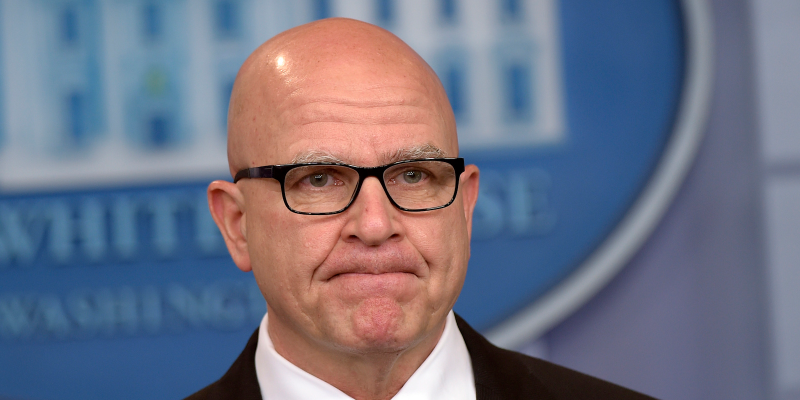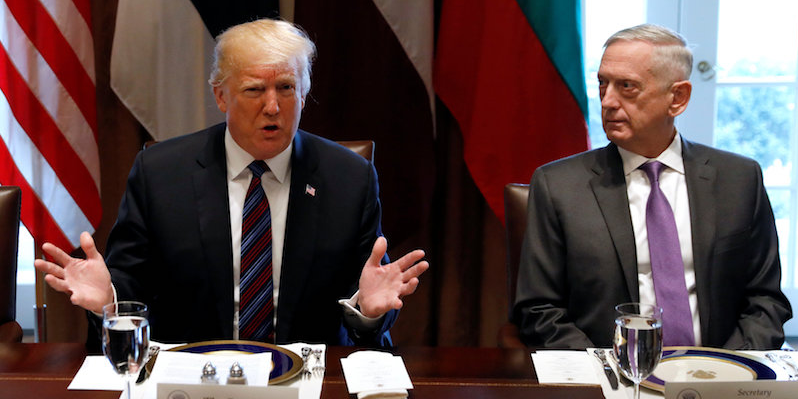- Defense Secretary James Mattis reportedly views himself as President Donald Trump’s “babysitter,” according to a New Yorker story.
- Mattis’s efforts to moderate Trump created tensions with former White House national security adviser H.R. McMaster.
- McMaster’s aides claimed he never advocated for a “bloody nose” strike against North Korea, contrary to widespread reports.
Defense Secretary James Mattis reportedly views himself as President Donald Trump’s “babysitter,” and his efforts to restrain the bombastic leader apparently created tensions with former White House national security adviser H.R. McMaster.
McMaster sought to provide Trump with an array of military options against North Korea, but the defense secretary allegedly refused to put all the options on the table in front of Trump, McMaster aides told The New Yorker. Meanwhile, the president reportedly did not pick up on Mattis’s alleged attempts at stonewalling, and McMaster declined to expose his colleague.
One senior National Security Council official told The New Yorker that Mattis felt like he had to play “babysitter” to Trump.
What’s more, McMaster’s aides claimed the widespread reports that he was specifically pushing for a so-called “bloody nose” strike against North Korea were false. A bloody nose strike would involve an attack against North Korea strong enough to intimidate and embarrass Kim Jong Un’s regime, but not serious enough to spark a full-blown conflict. Many experts have warned such a strike could have catastrophic consequences and would not go as smoothly as its proponents believe.

There is limited intelligence on the location of North Korea's military assets - including its nuclear weapons. Moreover, in November, the Joint Chiefs of Staff determined that a ground invasion would be necessary to fully dismantle North Korea's nuclear program. In short, a bloody nose strike would risk allowing North Korea to retaliate against the US or its allies with any number of military options, not excluding its nuclear arsenal.
The Trump administration's discussions surrounding military options against North Korea largely came as the rogue state conducted a series of long-range missile tests in 2017. These tests - part of Pyongyang's larger goal of developing a nuclear weapon capable of reaching the mainland US - resulted in harsh economic sanctions being leveled against the reclusive nation and led to a war of words between Trump and Kim.
But North Korea's relationship with the US appears to be shifting in 2018 as Trump and Kim are set to hold a historic meeting about denuclearization. On April 20, North Korea announced it would cease its long-range missile and nuclear tests and close its primary nuclear testing site. Trump celebrated this development on Twitter, describing it as a sign of "progress being made for all!"

